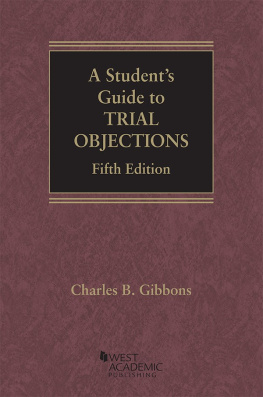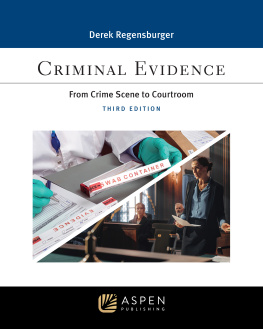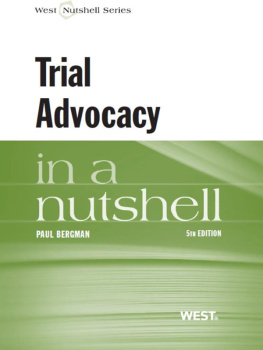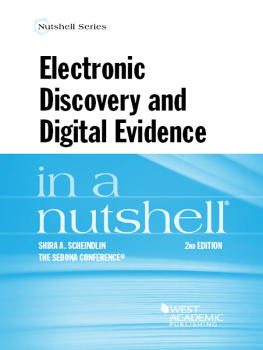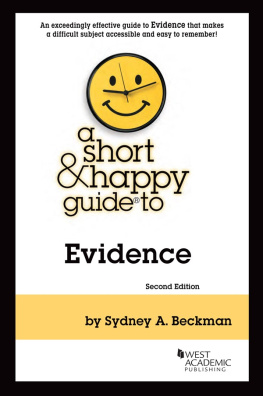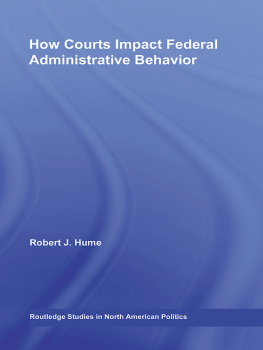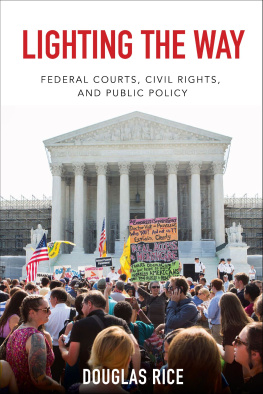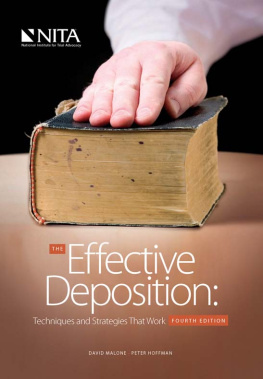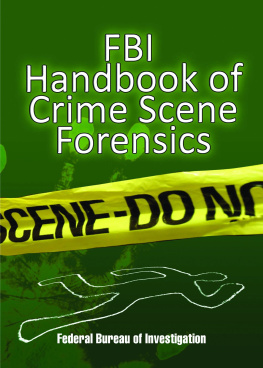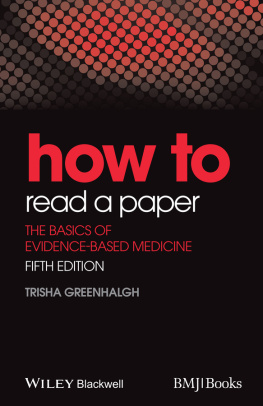West Academic Publishings Law School Advisory Board
JESSE H. CHOPER
Professor of Law and Dean Emeritus
University of California, Berkeley
JOSHUA DRESSLER
Distinguished University Professor, Frank R. Strong Chair in Law
Michael E. Moritz College of Law, The Ohio State University
YALE KAMISAR
Professor of Law Emeritus, University of San Diego
Professor of Law Emeritus, University of Michigan
MARY KAY KANE
Professor of Law, Chancellor and Dean Emeritus
University of California, Hastings College of the Law
LARRY D. KRAMER
President, William and Flora Hewlett Foundation
JONATHAN R. MACEY
Professor of Law, Yale Law School
ARTHUR R. MILLER
University Professor, New York University
Formerly Bruce Bromley Professor of Law, Harvard University
GRANT S. NELSON
Professor of Law Emeritus, Pepperdine University
Professor of Law Emeritus, University of California, Los Angeles
A. BENJAMIN SPENCER
Justice Thurgood Marshall Distinguished Professor of Law
University of Virginia School of Law
JAMES J. WHITE
Robert A. Sullivan Professor of Law Emeritus
University of Michigan
A Students Guide to Trial Objections
Fifth Edition
Charles B. Gibbons
Buchanan Ingersoll & Rooney
Pittsburgh, Pennsylvania

The publisher is not engaged in rendering legal or other professional advice, and this publication is not a substitute for the advice of an attorney. If you require legal or other expert advice, you should seek the services of a competent attorney or other professional.
West, a Thomson Business, 2003, 2007
2010 Thomson Reuters
2015 LEG, Inc. d/b/a West Academic
2018 LEG, Inc. d/b/a West Academic
444 Cedar Street, Suite 700
St. Paul, MN 55101
1-877-888-1330
West, West Academic Publishing, and West Academic are trademarks of West Publishing Corporation, used under license.
Printed in the United States of America
ISBN: 978-1-64242-286-3
CBG PKG
June 9, 1968 June 9, 2018
What will survive of us is love.
From the poem An Arundel Tomb
by Philip Larkin
Preface
In his insightful book, The Trial Lawyer: What It Takes To Win (ABA Publishing, 2003), Texas trial lawyer David Berg cautions:
A lawyer shouldnt do something simply because she canespecially when it comes to making objections. You must choose the right moment, and make the right objectionor dont make an objection at all.
For law students, the right moment is best addressed in trial practice courses and books by Berg, Mauet, McElhaney, and others. The right objection is the larger business of this small book.
Beginning with the original edition of this book, published 15 years ago, what I have tried to do, in a very compressed fashion, is to identify a number of points of evidence (selected on the basis of repetition in the reported decisions) and sketch out how the various federal courts are currently addressing them. The hope is to provide some of the straw needed to make the bricks that comprise the law students understanding of the right objection.
I am grateful for the assistance of my practice assistant, Phyllis Stock, who prepared the manuscript.
Charles B. Gibbons
Pittsburgh
June, 2018
About the Author
Charlie Gibbons is a litigation partner at Buchanan Ingersoll & Rooney PC, Pittsburgh, Pennsylvania. A graduate of the Scranton Preparatory School, the University of Scranton and Boston College Law School, he is a Fellow of the American College of Trial Lawyers and a Member of the American Law Institute. He has tried dozens of cases in fields as diverse as federal taxation, civil rights, environmental compliance, secondary boycott, defects in design and construction of commercial buildings and sports arenas, torts and business disputes. During the past twenty-five years, he has written a number of books on evidence and trial practice published by Thomson Reuters-West, including Federal Trial Objections , Sixth Edition (Thomson Reuters 2017) and Pennsylvania Rules of Evidence with Trial Objections , Seventh Edition (Thomson Reuters 2015). He also compiled and edited The Art of Cross-Examination, Essays From the Bench and Bar (ABA Publishing 2014).
Mr. Gibbons has served as Chairman of the Pennsylvania Supreme Court Committee on the Rules of Evidence and was a member of that Courts committee which drafted Pennsylvanias evidence code. He has lectured on evidence at annual conferences of both federal and state trial judges and has lectured extensively on trial practice.
Table of Contents
Character Witness: Hypothetical Question Assuming
Guilt
Evidence Excluded by Statute: Federal Highway Safety
Act
Hearsay Exemption: AdmissionPersons Authorized to
Speak
Hearsay Exception: Market Reports, Commercial
Publications
Hearsay Exception: Reputation Concerning Boundaries
or General History
Hearsay Exception: Statements in Documents Affecting
an Interest in Property
Rule of Completeness (Remainder of or Related Writings
or Recorded Statements)
A Students Guide to Trial Objections
Fifth Edition
Argumentative
See:
Fed.R.Evid. 611(a)
Mil.R.Evid. 611(a)
Objection
- Objection. The question is argumentative.
- Objection. Counsel is arguing with the witness.
Response
- I have properly phrased my question to elicit evidence from this witness.
Commentary
Fed.R.Evid. 611(a) provides that the court shall exercise reasonable control over the mode of interrogating witnesses. U.S. v. Dawson , 434 F.3d 956 (7th Cir. 2006) (trial judge has responsibility not to allow cross-examination to get out of hand, confuse the jury and prolong the trial unnecessarily). Any question which is actually an argument is improper. Cf. Mendez v. County of San Bernardino , 540 F.3d 1109 (9th Cir. 2008) . Argumentative questions are those questions which are not intended to elicit new information but which are intended to argue to the jury through the witness, or which call for an argument in answer to an argument contained in the question. Typically, such a question states a conclusion and asks the witness to agree with it, or is asked in a sarcastic tenor:
Do you mean to tell me... or Doesnt it seem strange that...
The impropriety of such questions is illustrated in: U.S. v. Pereira , 848 F.3d 17 ( 1st Cir. 2017 ) (were they lying questions are argumentative; often their primary purpose is to make the defendant appear accusatory. The danger is that the prosecutor first forces the defendant to label government witnesses as liars who are making up stories, and then after laying this groundwork, seeks to convince the jury that it is the accusatory defendantand not the prosecution witnesseswho is unworthy of belief); U.S. v. Abair , 746 F.3d 260 (7th Cir. 2014) (prosecutor asked highly improper compound question with at least twelve distinct factual assertions built into it that was really just an accusatory speech); Smith v. Estelle , 602 F.2d 694, 700 n.7 (5th Cir. 1979) ([Y]oure kind of the hatchet man down here for the District Attorneys Office, arent you?); U.S. v. Micklus , 581 F.2d 612, 617 n.3 (7th Cir. 1978) (It wouldnt bother you any, to come in here and lie from the time you started to the time you stopped, would it?); U.S. v. Briscoe , 839 F.Supp. 36, 39 (D.D.C. 1992) (Isnt what you told this jury on its face ridiculous?).
Treatises and Practice Aids
Goode and Wellborn, Courtroom Handbook on Federal Evidence Chapter 5, Chapter 6 (annual ed.)

